
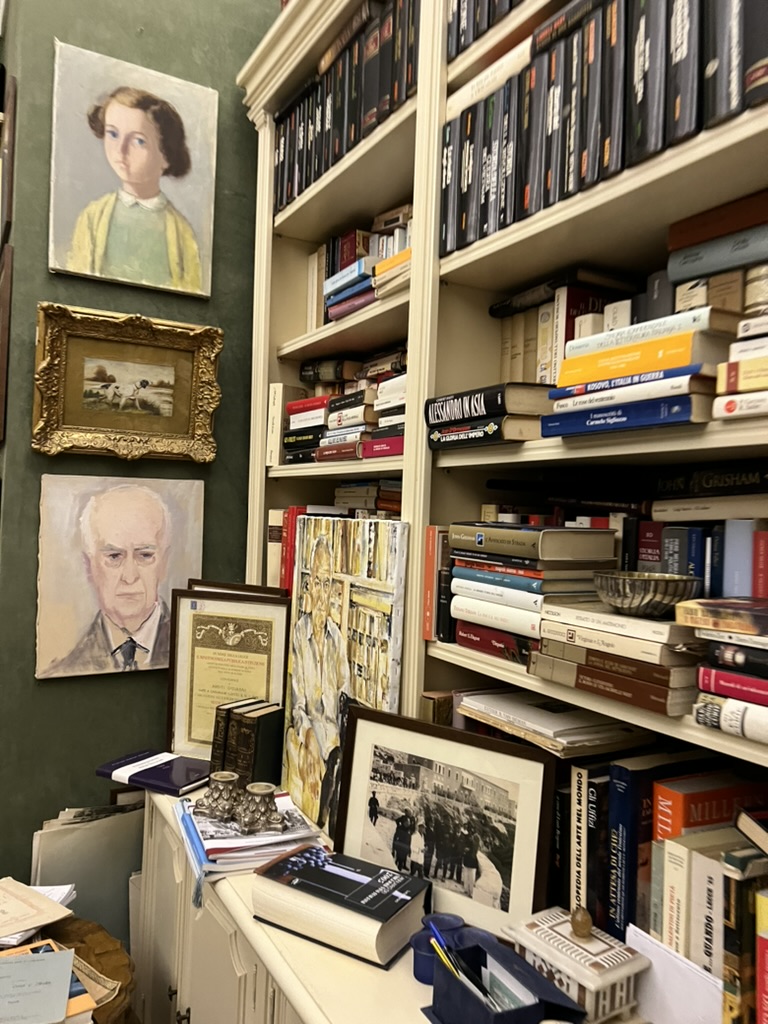
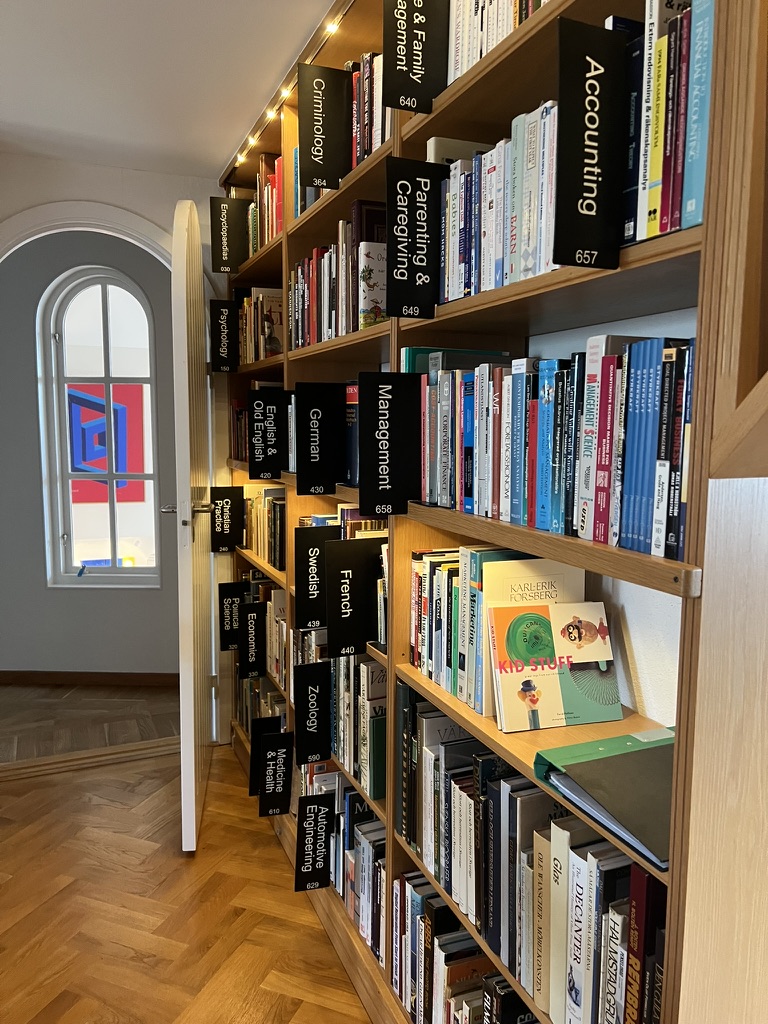

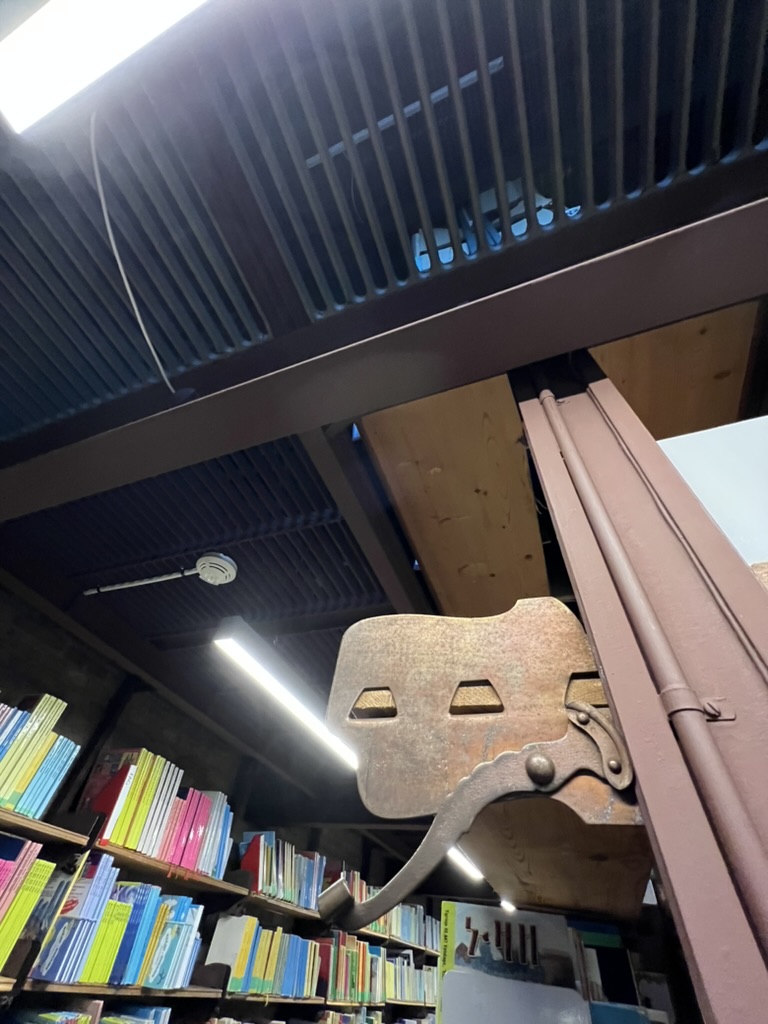

First a few library photos from my travels…For a variety of reasons (OK, I confess, mainly Instagram and Youtube) I haven’t been reading as much over the past few years. I’ve always relied on libraries for the majority of my reading material, both print and audio books. In Sweden, the selection of books in English is more limited (though to be fair, pretty great) and I find myself turning to audio books. But Publicly funded libraries are in crisis world wide. Physically checking out materials is one of the best ways to support your library. Borrowing digital materials including audio books also helps. I try to make a weekly library visit in person and check out some books every time, even though I don’t read them all, just to help those circulation stats! I know this helps the system in Sweden, just as it does in the US, because I participated in a research project in Lund about the Swedish library system. Public libraries are a vital tool in combating disinformation. Digital literacy is an important predictor of the ability to tell truth from falsehood, a first step in addressing the crisis of misinformation and the seemingly broad acceptance of “alternative facts”. #factsmatter
In an effort to consume less social media and in pursuit of deeper knowledge and personal development, I’ve been choosing more books outside my comfort zone which normally consists of mystery, fantasy, sci-fi, historical fiction, and nordic noir.
My primary strategy to increase reading is to have multiple books going simultaneously. When I lose focus, become too sad or overwhelmed by the content or just need a change of pace, I have books in another format or genre ready to pick up. Libby allows me to keep up to 15 books on hold at a time. Between Libby and Audible, I can usually find titles I need as well as plenty of “available now” options.
Here are some that broadened my knowledge or perspective and were worth the effort. These books are not my comfort reads, but I find myself returning to ponder the ideas and stories. These are the books that stuck with me or resonated deeply.
An Imense World by Ed Yong “Pulitzer Prize–winning science journalist Ed Yong coaxes us beyond the confines of our own senses, allowing us to perceive the skeins of scent, waves of electromagnetism, and pulses of pressure that surround us. We encounter beetles that are drawn to fires, turtles that can track the Earth’s magnetic fields, fish that fill rivers with electrical messages, and even humans who wield sonar like bats. We discover that a crocodile’s scaly face is as sensitive as a lover’s fingertips, that the eyes of a giant squid evolved to see sparkling whales, that plants thrum with the inaudible songs of courting bugs, and that even simple scallops have complex vision. We learn what bees see in flowers, what songbirds hear in their tunes, and what dogs smell on the street. We listen to stories of pivotal discoveries in the field, while looking ahead at the many mysteries that remain unsolved.”
Homo Deus by Yuval Noah Harari “Homo Deus: A Brief History of Tomorrow examines what might happen to the world when old myths are coupled with new godlike technologies, such as artificial intelligence and genetic engineering.”
Eve by Cat Bohannan “In Eve, Cat Bohannon answers questions scientists should have been addressing for decades. With boundless curiosity and sharp wit, she covers the past 200 million years to explain the specific science behind the development of the female sex. Eve is not only a sweeping revision of human history, it’s an urgent and necessary corrective for a world that has focused primarily on the male body for far too long. Bohannon’s findings, including everything from the way C-sections in the industrialized world are rearranging women’s pelvic shape to the surprising similarities between pus and breast milk, will completely change what you think you know about evolution and why Homo sapiens have become such a successful and dominant species, from tool use to city building to the development of language.”
Estrogen Matters by Avrum Bluming and Carol Tavris This book was updated in 2024 and I included it to emphasize the challenges we face as regular people trying to navigate issues far beyond the capacity that most of us have for “doing our own research” How do we get reliable health information?
“For years, hormone replacement therapy (HRT), also called menopausal hormone therapy (MHT), was hailed as a miracle. Study after study showed that HRT, if initiated at the onset of menopause, could ease symptoms from hot flushes to memory loss; reduce the risk of heart disease, Alzheimer’s, osteoporosis, and some cancers; and even extend a woman’s overall life expectancy. But when the Women’s Health Initiative (WHI) announced that women taking HRT were at increased risk for breast cancer, fears of estrogen skyrocketed and hormone therapy was abandoned.”
Now, Dr. Bluming, a medical oncologist, and Dr. Tavris, a social psychologist, reveal the true story of the WHI’s distorted data. They investigate what led the public—and many doctors—to accept so readily the WHI’s incorrect, alarmist claims, while providing a fuller picture of the science that supports HRT. Important additions to this new edition include:
• Evidence that demolishes the WHI’s assertion that that their data found that HRT causes breast cancer— and a list of the many claims they have since retracted.
• Updated research on estrogen’s benefits on heart, brain, bones, and longevity.
• A critical review of the alternative products and medications marketed to treat symptoms of menopause.
Biggest takeaway…estrogen supplementation can help prevent or reduce the severity of many health issues but it generally cannot fix them after deterioration has begun. For myself I feel that the benefits of estrogen outweigh the risks (eating sugar has a much higher risk, for example). The hot flashes I was experiencing ended almost immediately when I started using estrogen. It’s comforting to know that research overwhelmingly points to safely reducing or stopping hot flashes and added protection against bone, brain, heart and other muscle disease and that I was able to begin treatment in time since these benefits depend on starting within 10 years of menopause.
James by Percival Everett A brilliant reimagining of Adventures of Huckleberry Finn—both harrowing and satirical—told from the enslaved Jim’s point of view “When Jim overhears that he is about to be sold to a man in New Orleans, separated from his wife and daughter forever, he runs away until he can formulate a plan. Meanwhile, Huck has faked his own death to escape his violent father. As all readers of American literature know, thus begins the dangerous and transcendent journey by raft down the Mississippi River toward the elusive and unreliable promise of the Free States and beyond.”
The Overstory by Richard Powers, winner of the Pulitzer Prize in Fiction “is a sweeping, impassioned work of activism and resistance that is also a stunning evocation of—and paean to—the natural world. From the roots to the crown and back to the seeds, Richard Powers’s twelfth novel unfolds in concentric rings of interlocking fables that range from antebellum New York to the late twentieth-century Timber Wars of the Pacific Northwest and beyond. There is a world alongside ours—vast, slow, interconnected, resourceful, magnificently inventive, and almost invisible to us. This is the story of a handful of people who learn how to see that world and who are drawn up into its unfolding catastrophe.”
I found this book incredibly compelling and emotionally draining. I took frequent breaks to decompress because it hit me so hard. I already had a deep love for trees and now have an even deeper appreciation of them. The power of trees is just beyond words.
This story sometimes reminded me of the Jurassic Park quote, “Life finds a way.” and a previous favorite read of mine Animal, Vegetable, Miracle by Barbara Kingsolver, whose review sums it up for me…“Monumental, The Overstory accomplishes what few living writers from either camp, art or science, could attempt. Using the tools of the story, he pulls readers heart-first into a perspective so much longer-lived and more subtly developed than the human purview that we gain glimpses of a vast, primordial sensibility, while watching our own kind get whittled down to size.… A gigantic fable of genuine truths.”
That ends my Reading segment for now. All of these are books that I pushed myself to pick up and was rewarded for the effort.
To wrap up, photos from recent events: some lovely hikes in the much drier than average Spring weather (drought conditions, unfortunately) dinner with my third (or so) cousin Anne and her husband and daughter, a fun time catching up over fish tacos and diy tortillas but I forgot to take photos, an unusual perspective on the stortorget construction from my doctor’s office, and finally recipe club- In keeping with the soup theme Kajsa brought a light and refreshing apple soup for dessert.

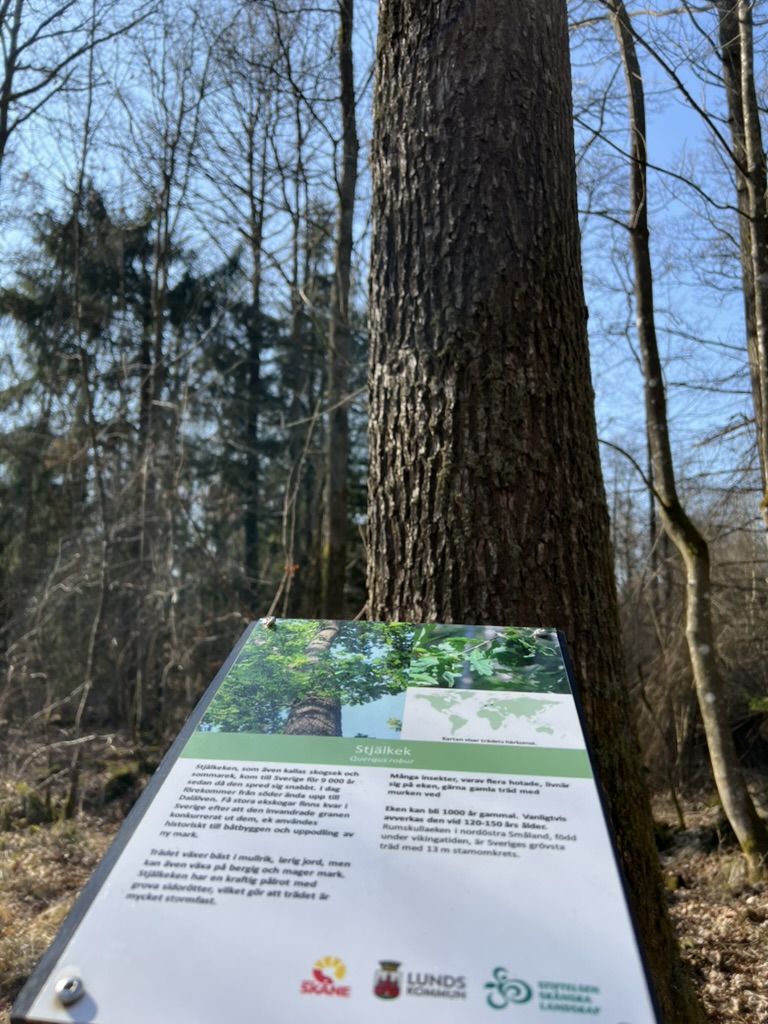
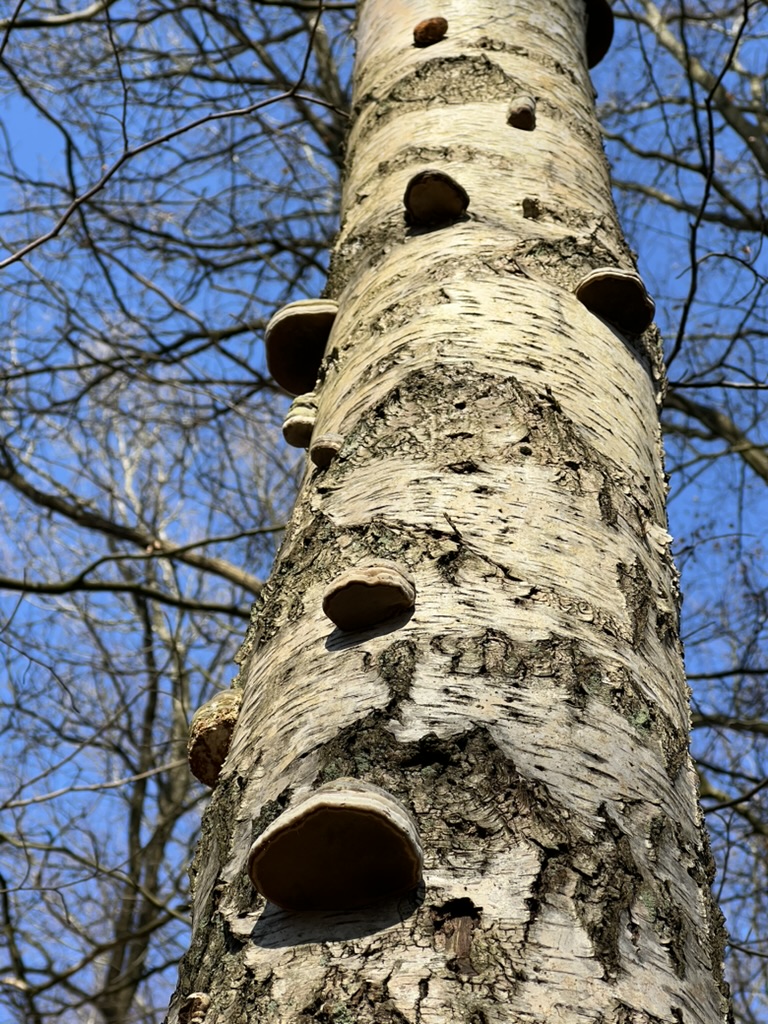

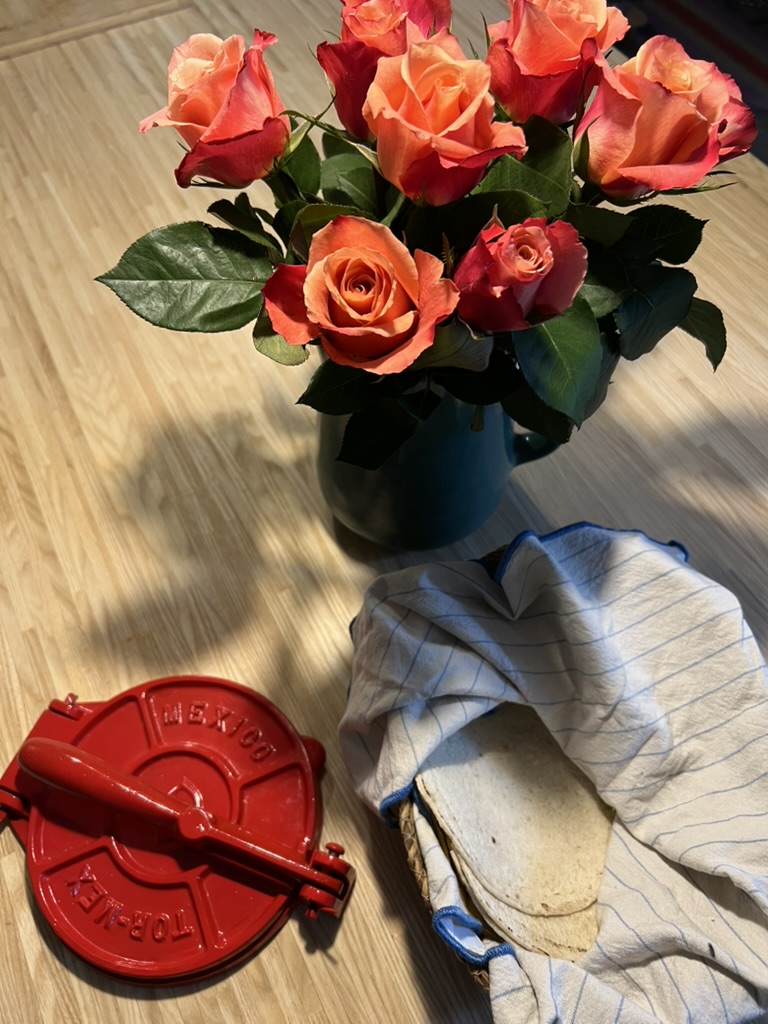

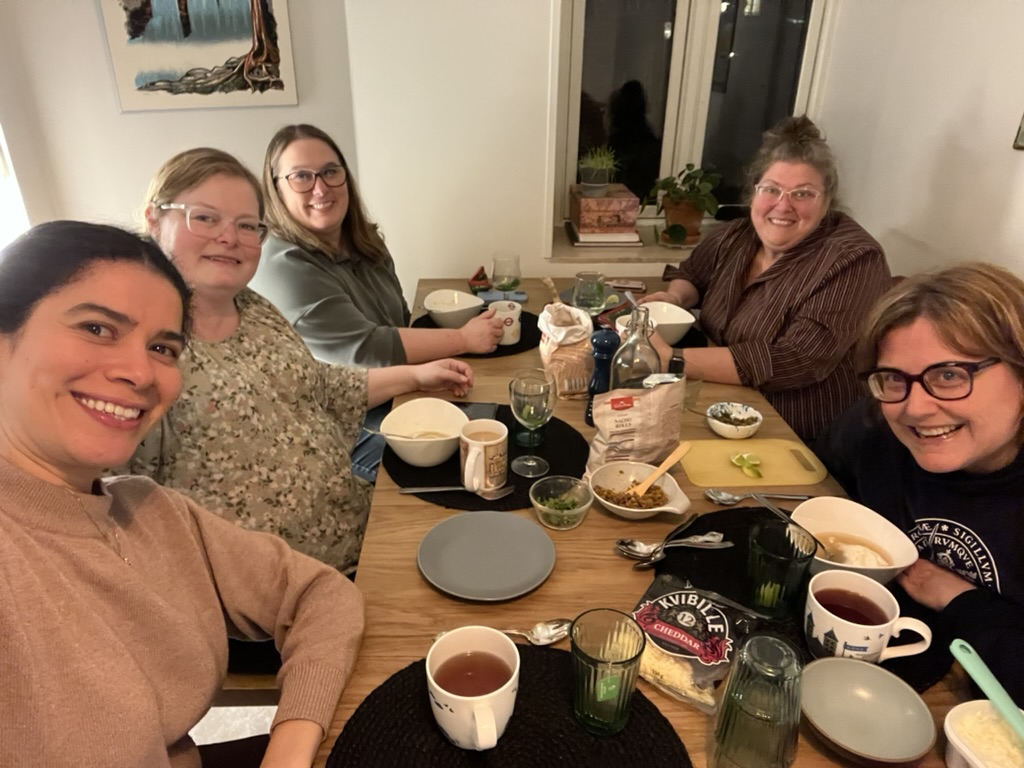


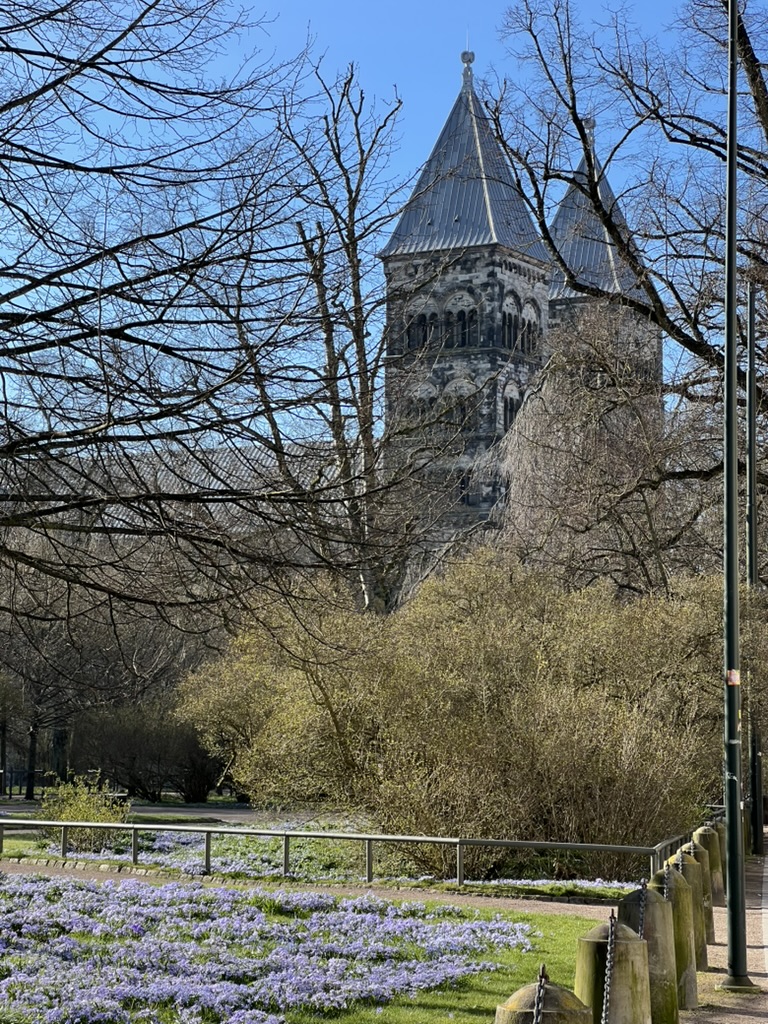

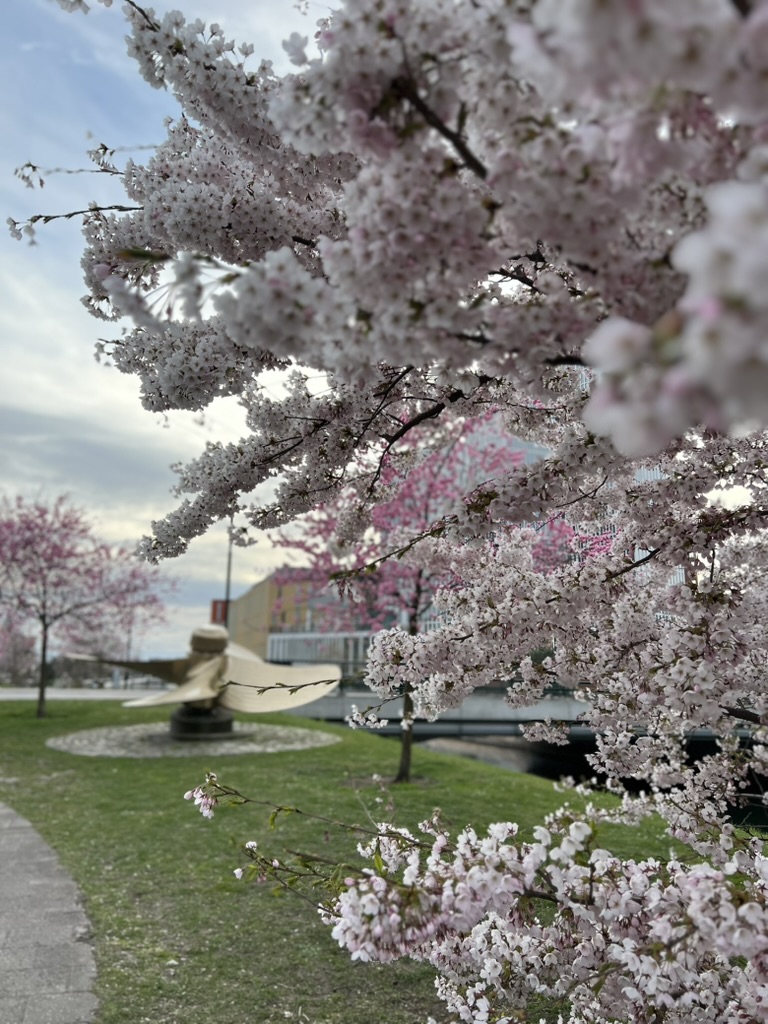

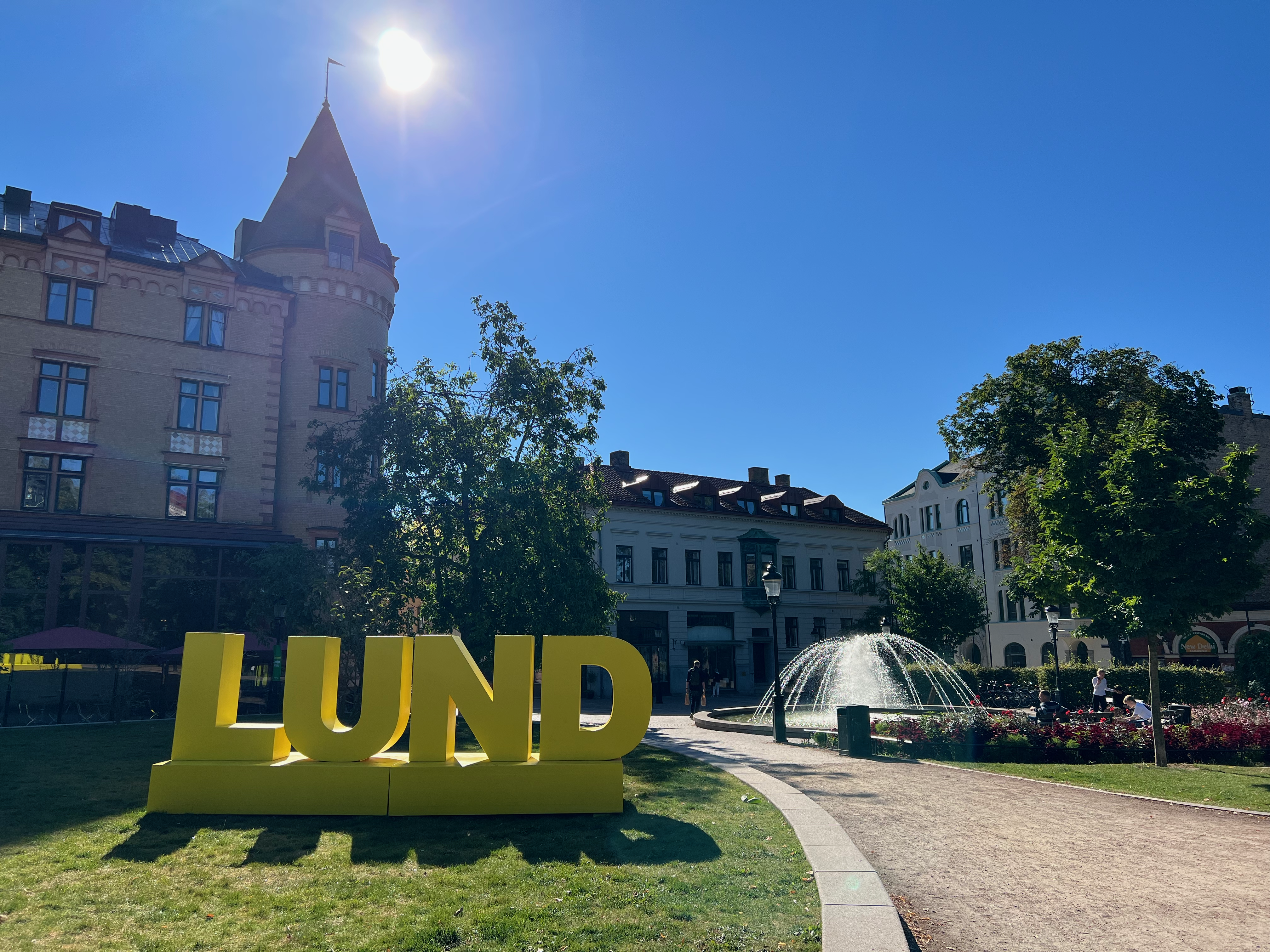
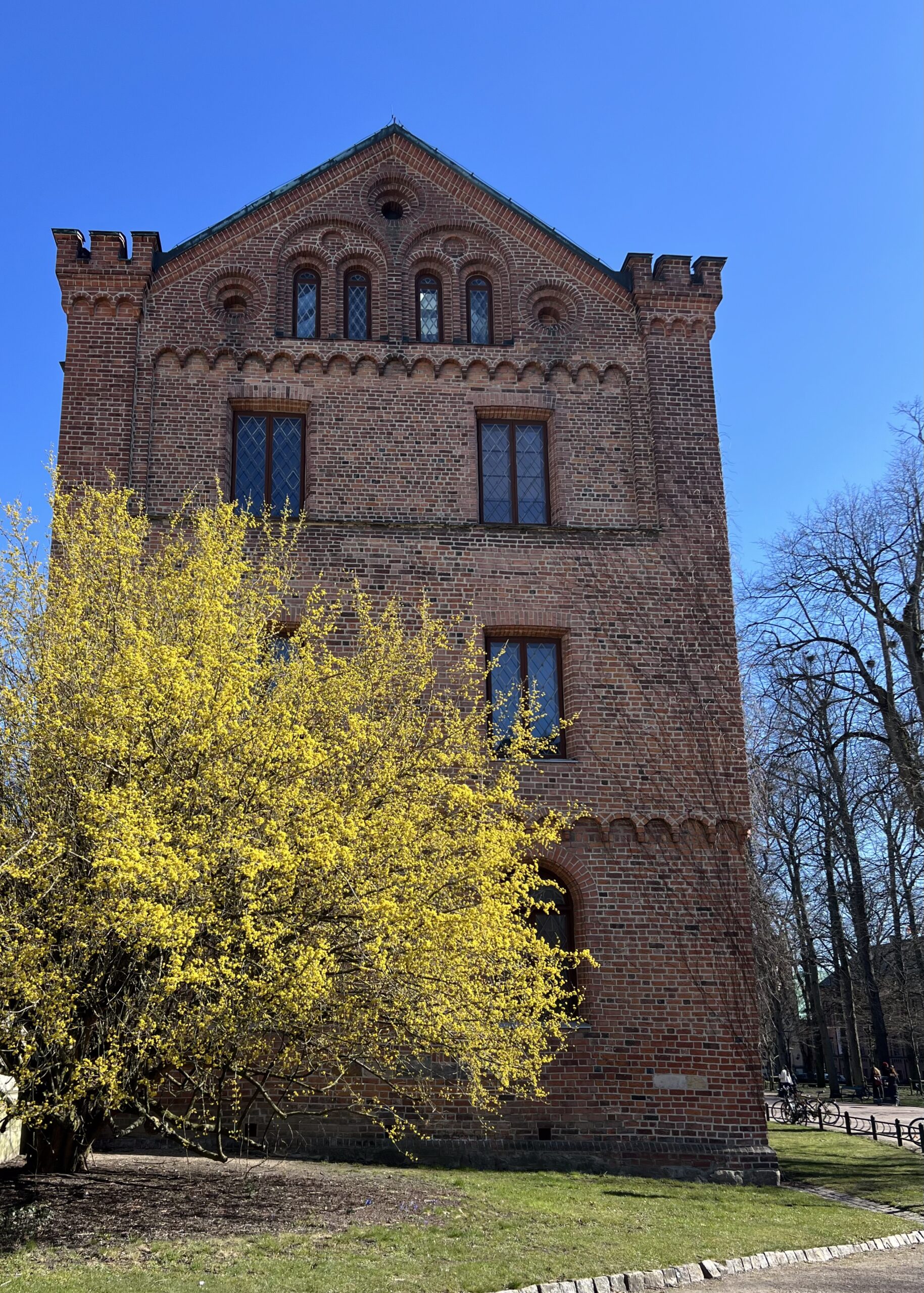
Leave a Reply